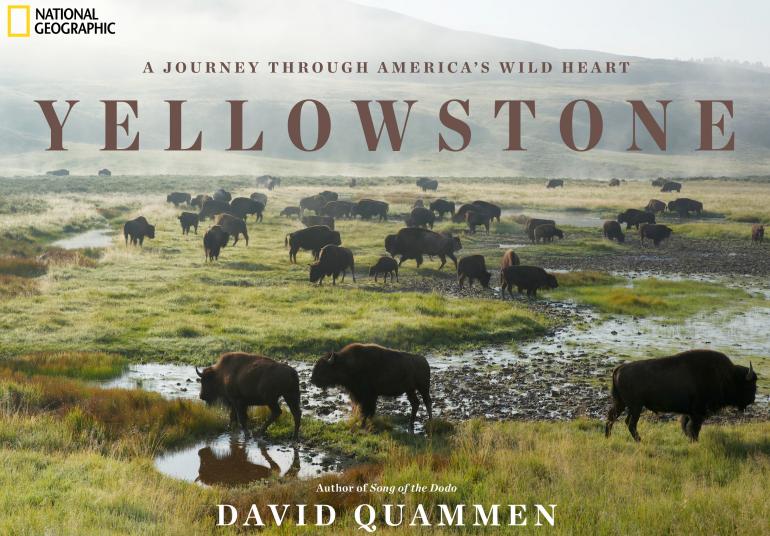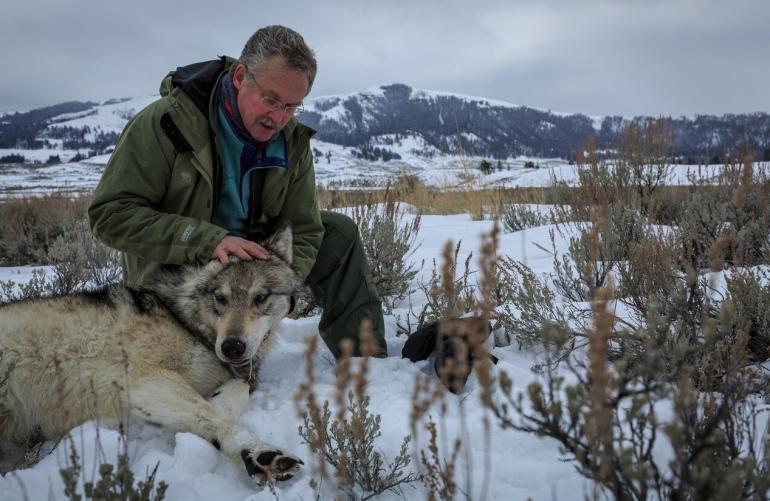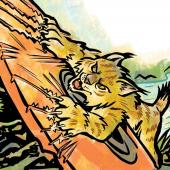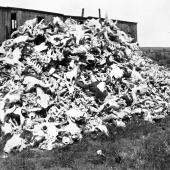Montanan You Should Know: DAVID QUAMMEN
Award-winning Author & Journalist | Science, Nature, and Travel Writer
The most frequent question I get about my writing is… “How does a person get started working for National Geographic?”
Please let me know if you find my… car keys in the snow at Bridger Bowl.
One thing I’ve learned not to trust is… reassurances, before a lecture, that the local venue’s projector will connect fine to my laptop and show the beautiful photographs from my photographer colleagues without the intervention of Murphy’s Law.
I often wonder… how deeply satisfying it would be to play tenor sax for Bruce Springsteen and the E Street Band.
If I had it all to do over again the one thing I would most like to change is… that I’d start playing organized ice hockey at age 6 instead of age 47.
My three favorite books of all time are… Absalom, Absalom!, Anna Karenina, and The Brothers Karamazov.
Maybe the craziest thing I’ve ever done for a story was…to ride that failing riverboat up the Rio Madeira, in the Amazon, in the middle of the night, with the river full of black caimans, and go to sleep in a hammock on the upper deck, despite the fact that the captain had borrowed duct tape from us to fix the bilge pump.
We have many lessons to learn in life. The one lesson I’ve never been able to learn is… that life is supposedly full of clear, useful lessons.
The book I will write “someday” is… another novel, maybe.
You will find me with a big smile when I… ski down from the last run of the season at Bridger Bowl, over corn snow, on a sunny spring day, with my wife, Betsy.
I always start my day off with… a walk in the neighborhood with the dogs.
If I had pursued “the road not taken,” today I would be a… herpetologist or an entomologist, retired from a career of studying snakes or insects.
If you want to know what keeps me up at night, it’s… hard to complain about anything that’s worth more than a few minutes at 4 a.m., then back to sleep.
After skill, the most important quality for a writer is… discipline.
With just a little more practice I think I could… go from being a terrible golfer to being a bad one.
My last great belly-laugh was… caused by something Marc Maron said on his podcast, “WTF,” of which even the full name is probably not publishable in this magazine.
When I get “stuck” in my writing it always helps to… remain at the desk, stay calm, and keep working.
The one thing I’ve never told anyone is… the secret identity of the vandal who painted that big white spider, circa 1959, on the roof of the College Hill School.
My favorite junk food will always be… Cincinnati’s infamous Skyline Chili.
A successful workday for me includes… six hours of writing, two pages produced, some exercise, and then a quiet evening at home with my wife and our animals.
* * * *
DAVID QUAMMEN'S BIO
David Quammen is an author and journalist whose 15 books include The Song of the Dodo, The Reluctant Mr. Darwin, and the award-winning Spillover, a work on the science, history, and human impacts of emerging diseases (especially viral diseases). His new book is Yellowstone: A Journey through America’s Wild Heart, which is an expanded version of the May 2016 special issue of National Geographic on the Greater Yellowstone Ecosystem, with photos by a team of wonderful Nat Geo photographers (the first time in the history of the magazine a single author has been assigned to write an entire issue). Quammen is a Contributing Writer for National Geographic, in whose service he travels often, usually to Africa. He has written for many other magazines and is a three-time recipient of the National Magazine Award. In addition he has published three novels and a book of short stories. Quammen has lived in Montana for 43 years. His home is in Bozeman, which he shares with his wife and their family of other mammals.

< FEATURED VIDEO: Thirteen Dead Gorillas - Emerging Diseases and the Next Human Pandemic (David Quammen at TEDxBozeman)
Video Description: David Quammen talks about scary new emerging diseases—such as Ebola, SARS, bird flu, AIDS—and where they emerge from: wildlife. Most are caused by viruses. The phenomenon, when such a virus passes from wild animals into people, is called spillover. Two factors account for the increasing risk of spillovers that may lead to pandemics: disruption (of diverse ecosystems) and connectivity (of the global human population). This is our future.













Leave a Comment Here